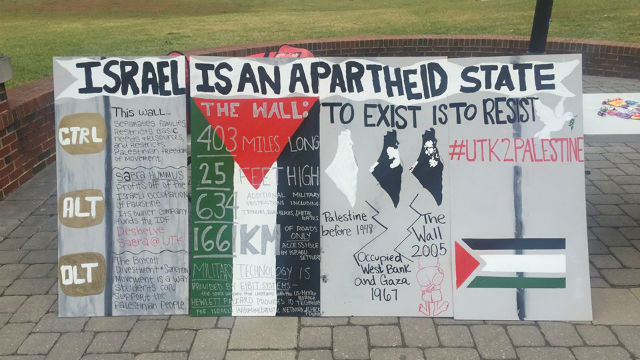The first Durban Conference birthed the BDS movement and all of its familiar activities.
By Nitsana Darshan-Leitner, JNS.org
The fourth Durban Conference, which convenes in South Africa on Sept. 22, is likely to be a reflection of the first Durban Conference, held 20 years ago.
The 2001 summit purported to discuss human rights violations and the fight against racism, but was taken over by Muslim countries hostile to Israel that perpetrated a diplomatic lynching of the Jewish state. Then, as now, Israeli diplomacy was surprised, beaten and unresponsive.
Among the resolutions put to a vote in 2001 were ones labeling Israel an apartheid state, requiring it and its allies to be boycotted; accusing it of genocide and crimes against humanity, justifying an “armed struggle” against it; and equating the Zionist movement with racism.
The conference was a festival of anti-Semitic venom. The guest of honor was then-PLO leader Yasser Arafat.
The first Durban Conference birthed the BDS movement and all of its familiar activities. After Durban, European countries began to condemn Israel for any action it took to protect itself from deadly surges of terrorism. Durban was what led to the establishment of the United Nations Human Rights Council, where 50% of the resolutions are against Israel. Durban is what inspired the International Court of Justice in The Hague to go after Israel for war crimes.
Durban was also the catalyst that drove the United Nations to obsessively engage with the Israeli-Palestinian conflict. In 2018 alone, the UN General Assembly passed 21 resolutions condemning Israel, compared to six criticizing all other countries combined.
Between 2001 and 2018, the United States, using its veto power in the UNSC, thwarted 12 resolutions censuring Israel. Given the current composition of the Biden administration, it will be very challenging to extract an American veto on anti-Israel resolutions.
Today, the Palestinian Authority, under the auspices of the ICC and various UN councils, has been vigorously working to fully exploit Durban IV for yet another savage attack. Israel’s tactics, however, have remained unchanged: plead with the countries participating in the conference to abstain from voting. Lashing back at our detractors isn’t even an option, lest we incur the wrath of the rest of the world.
The assumption that in any war against radical human rights organizations we will face another wave of anti-Israel hatred must be shattered.
In the face of relentless lies one must take decisive steps, and stop stuttering. We must prevent the entry of BDS activists into the country, just as France, the United States, Britain and Canada bar entry to their soil from those who threaten to prosecute them.
We must also exact a price from UN envoys who pen false reports on Israel Defense Forces operations.
Still, how we can complain about steps taken by other countries if Israeli authorities themselves become active partners in the boycott of Israel and turn their backs on the fight against anti-Semitism?
Israel’s attorney general is currently preventing Jewish business owners in Judea and Samaria from suing the UN Human Rights Council for its “blacklist,” even though it is discriminatory and racist.
The Jerusalem court has asked Attorney General Avichai Mandelblit to rule on the matter six times since August 2020, but he refuses for fear of upsetting the United Nations, claiming that his representatives are negotiating to soften the decisions.
So before we point the finger of blame at countries worldwide, it would be better for the country’s top officials to stop behaving like exiled Jews who do not believe in our right to the state.
Nitsana Darshan-Leitner is an Israeli lawyer and the president of the Shurat HaDin Law Center. Her best-selling book Harpoon: The Covert War Against Terrorism’s Money Masters, co-authored with Samuel Katz, has just been released in Hebrew.
_____
This article first appeared in Israel Hayom.





